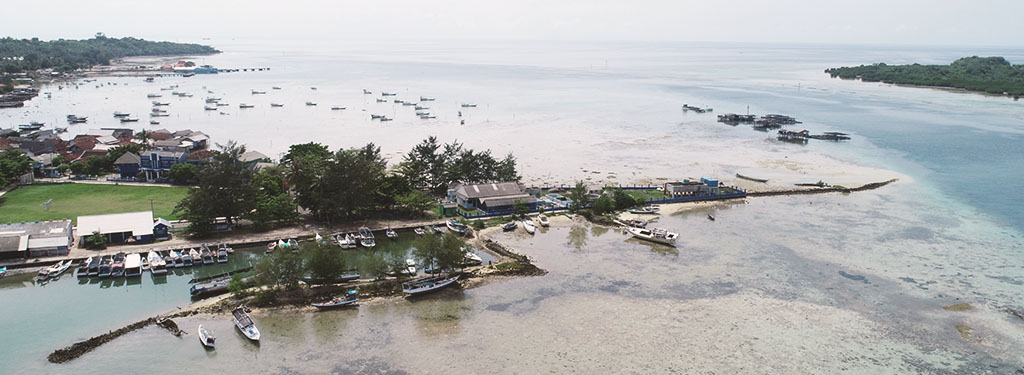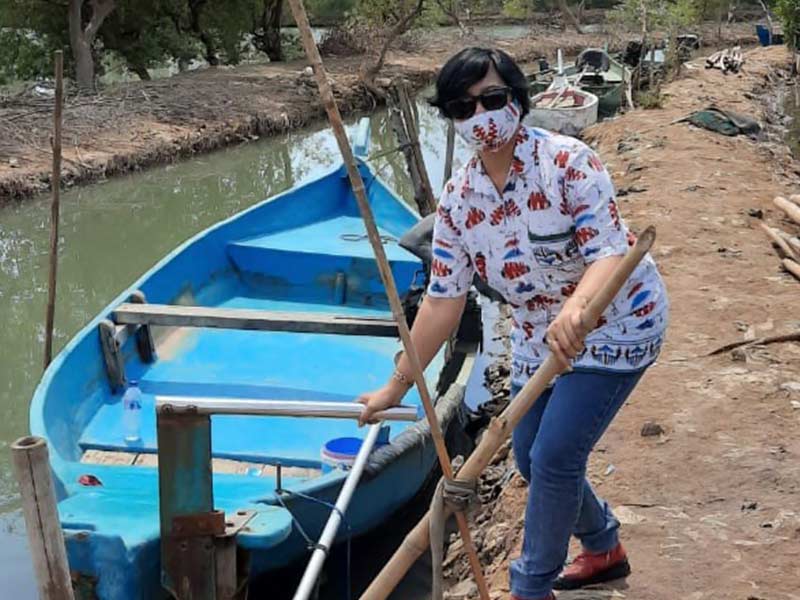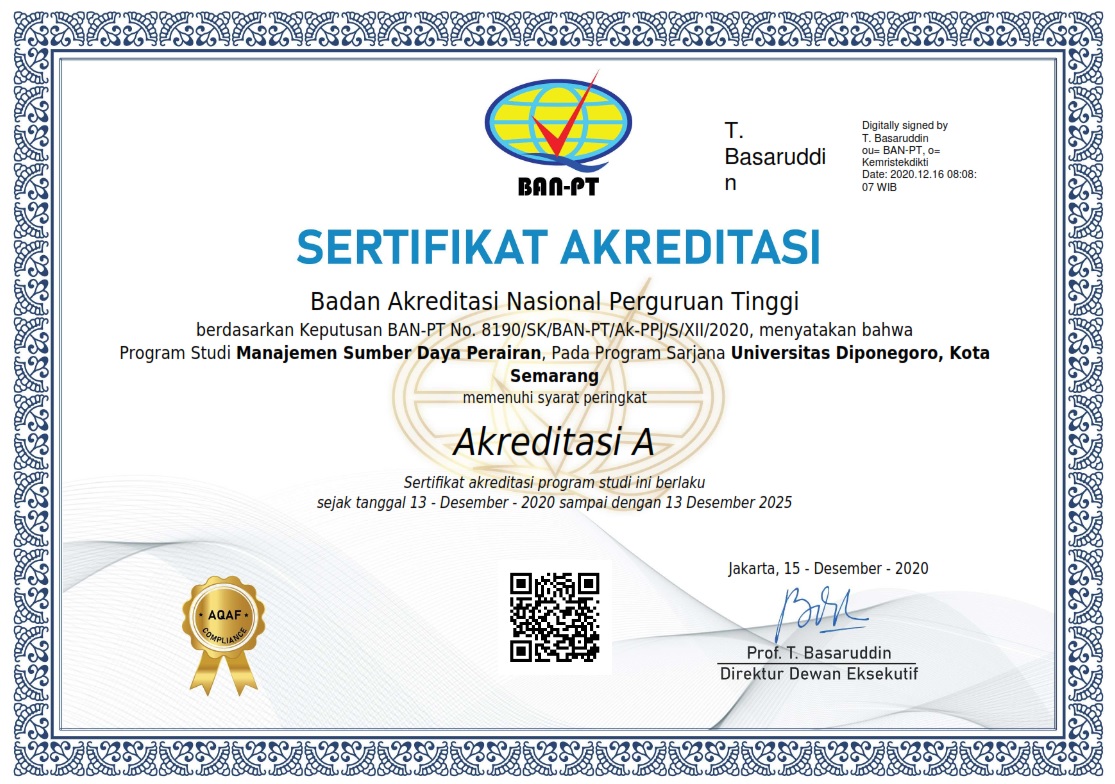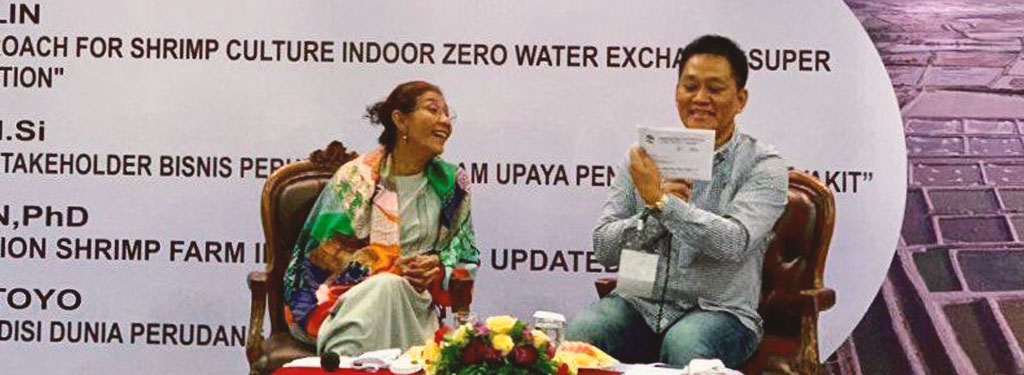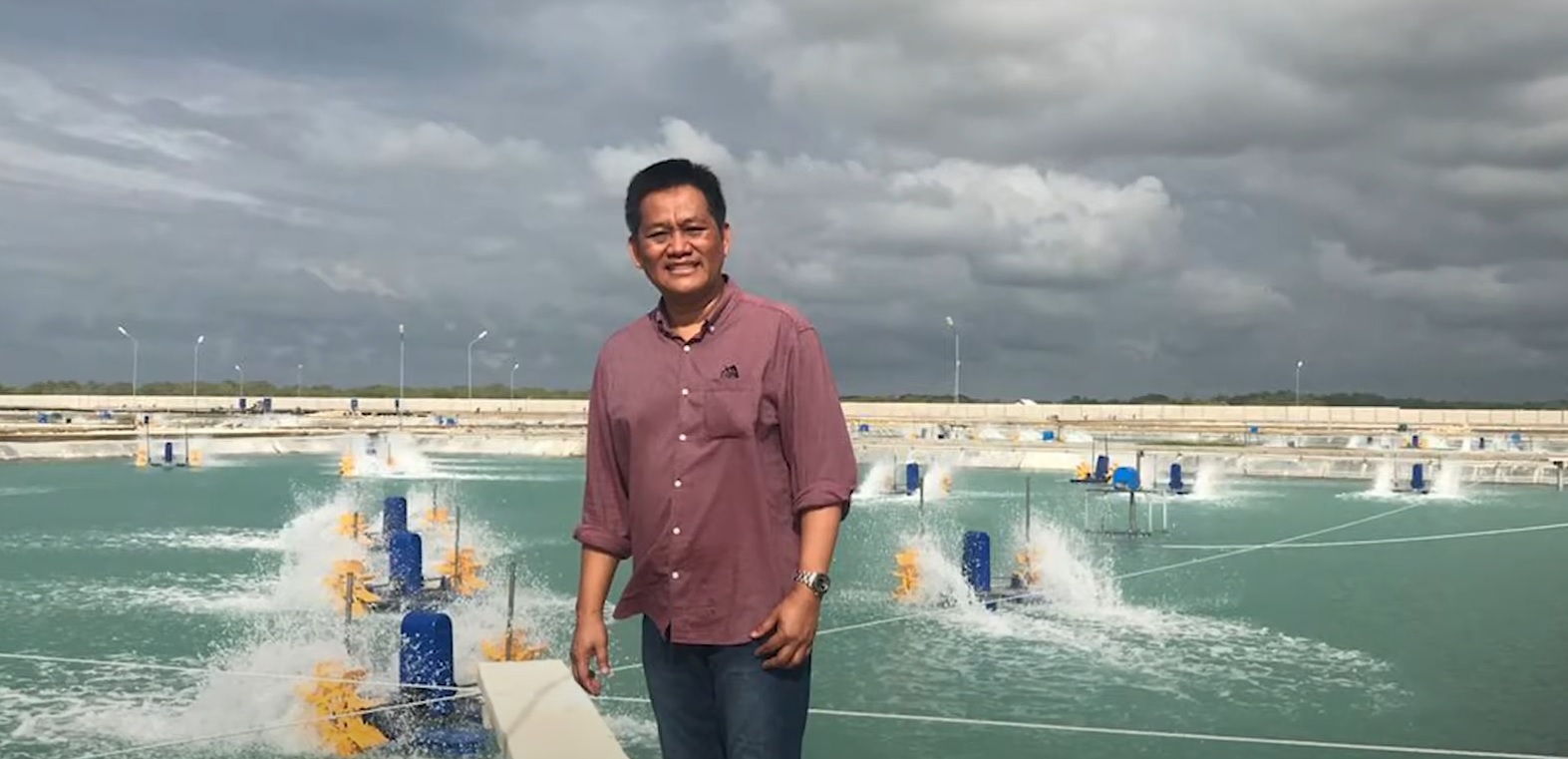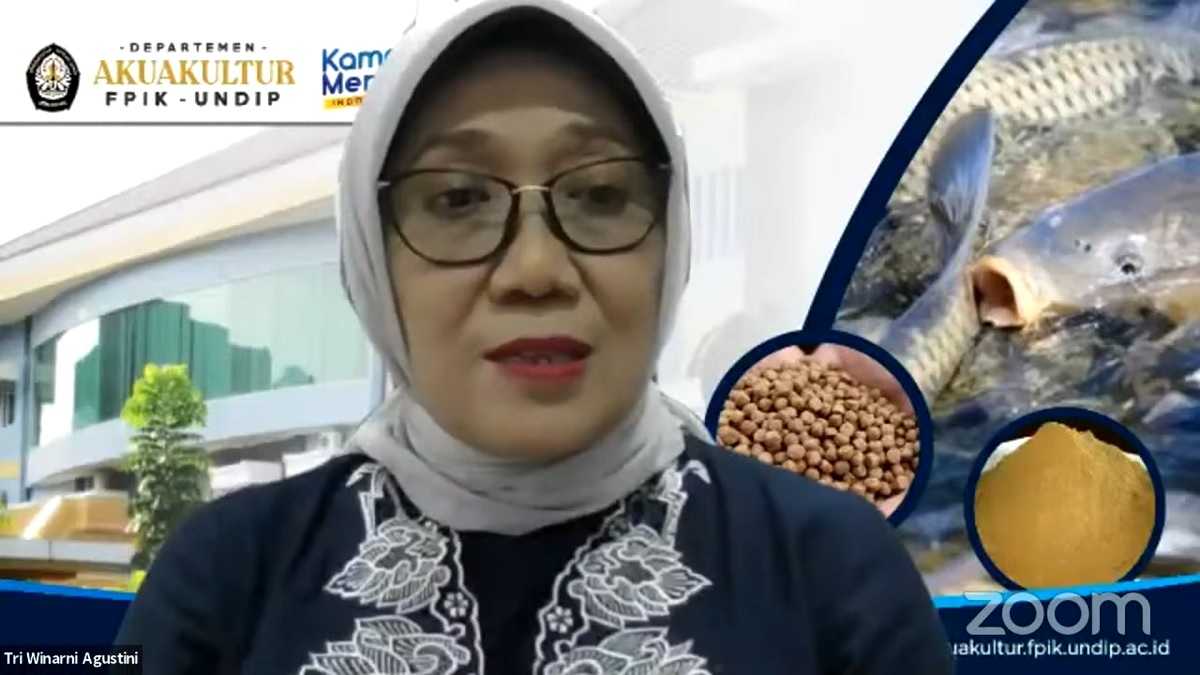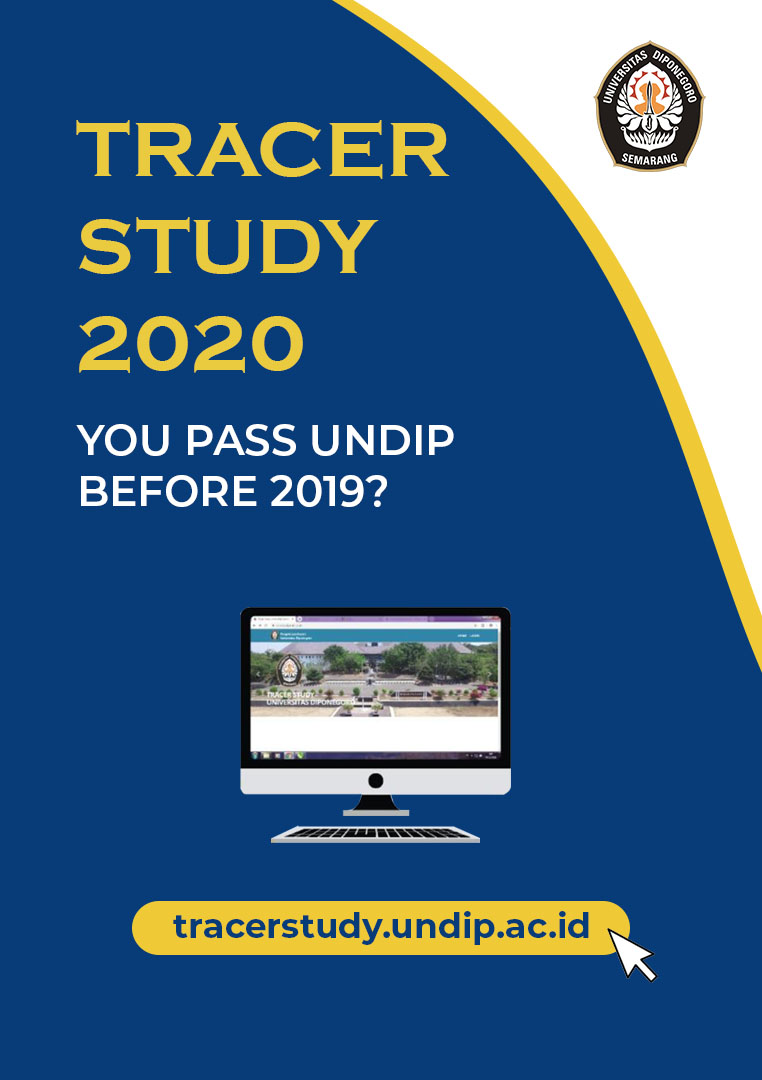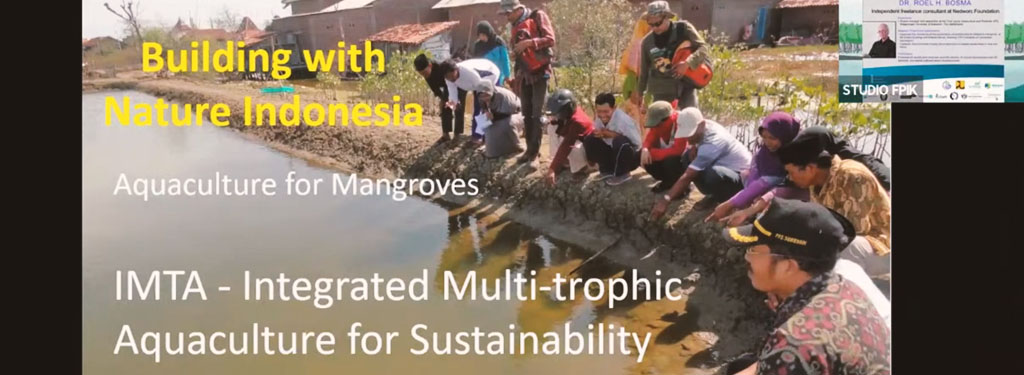
Create “Zero-Waste” Aquaculture | Webinar Series #3
FPIK, SEMARANG – The Faculty of Fisheries and Marine Science, Diponegoro University (FPIK UNDIP), last June 16, 2021, again hosted the 3rd Series of Aquaculture Supporting Mangrove Webinar with the theme Integrated Multi Trophic Aquaculture. This webinar presents Dr. Roel H. Bosma, Prof. Dr. Marc Verdegem (Wageningen University) collaborated with speakers from the Department of Aquaculture, FPIK UNDIP, namely Prof. Dr. Ir. Sri Fortune, MSc; Restiana Wisnu, M.Si and Lestari L Widowati, M.Sc.
In this 3rd webinar series, the Building With Nature Indonesia consortium presents information about the Integrated Multi-Trophic Aquaculture (IMTA) integrated multi-trophic cultivation system, starting from the background, concept, implementation to how it turns out. The IMTA system is one of the approaches used by the Building With Nature Indonesia program which aims to improve pond management practices on the North Coast of Java, especially in Demak Regency with environmentally friendly and sustainable principles.
Participants who attended were from various institutions, universities, practitioners both in Indonesia and several neighboring countries such as Malaysia and the Philippines. Prof. Sri Rejeki conveyed the IMTA concept as an environmentally friendly cultivation technique with zero waste principles, while the discussion of the webinar participants with Dr. Roel H. Bosma regarding motivation, application as well as obstacles and challenges in implementing this system. The two speakers shared knowledge about important aspects of IMTA based on the Project to Design Aquaculture to Support Mangrove Reforestation in Indonesia (PASMI) which was successfully implemented in 2016 – 2019. Prof. Marc as the keynote speaker, live from Wageningen, The Netherlands, gave material about Nutrious Pond, which is the principle of effective feed management in aquaculture. Since 2012, he has collaborated with WorldFish in developing the concept of ‘nutritional ponds’ and since 2020 has also been involved in an integrated research project with the theme ‘Climate Smart Farming’ in collaboration with the Bogor Agricultural University.
This series of webinars was carried out with the support of Wetlands International and Ecoshape, in collaboration with the Wetland Foundation, FPIK UNDIP and the Blue Forest Foundation. This webinar is a means to disseminate ideas and discuss the development of sustainable and integrated coastal aquaculture with mangrove forests through a collaborative approach to nature.
Vice Dean II, Prof. Dr. Aristi Dian Purnama Fitri, S.Pi., M.Si closed this webinar series and gave appreciation and felt proud to be able to participate in disseminating ideas as a form of scientific development and community service. FPIK UNDIP is ready to collaborate to build environmentally friendly and sustainable coastal ecosystems. At the end of the event, Woro Yuniati, M.Sc as the moderator delivered a take home message that the IMTA system is a cultivation method with an ecological approach of ‘zero-waste system’ by utilizing organisms based on trophic levels in the food chain. The use of multi-species in cultivation with the IMTA system has been proven to increase the efficiency of the pond, which in turn is able to increase the productivity of the pond and ultimately increase the economic income of the farmer. Implementation of the IMTA system can be successful by taking into account the factors of site suitability, the types of local organisms available and the seasonal calendar.
This 3rd series of webinar can be viewed online through the FPIK UNDIP Official YouTube Channel. (Source: undip.ac.id | Adm)

